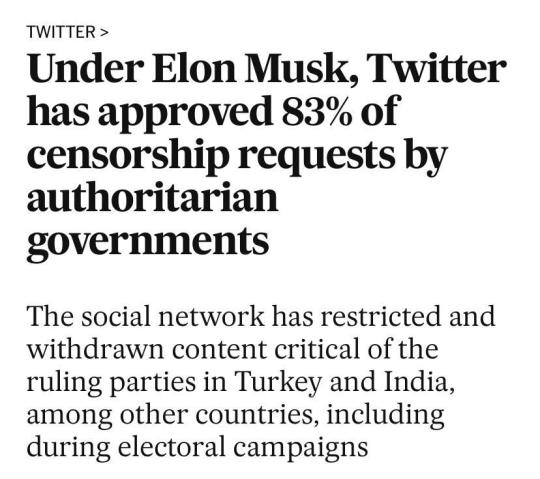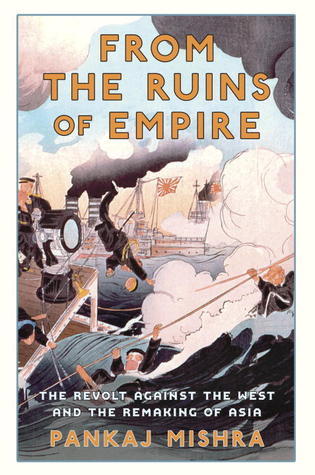#Job issues India
Explore tagged Tumblr posts
Text
#struggling india#lack of jobs#Indian job crises#Job issues India#India struggles without job#Education fails to deliver jobs India#Indian job market recession#unemployment in India#Unemployment percentage India
1 note
·
View note
Text
someone tell me it’ll be ok !!!
#i am down to my core TERRIFIED of moving out#I’ve had such a safety net living at home these past few years#but now I’ll be properly moving out with no support around me#idk man#like for undergrad not only did some of my hs friends go to the same school but my brother also went there and it was a few hours away from-#-from home. so even tho i technically ‘moved out’ then i didn’t really#and now odds are I’ll be moving to the east coast in august??? with NO local friends. and also no social skills whatsoever so making friends#will be another issue to deal with#i feel so sick#i wish i could quit my job now but no#no one is letting me leave and plus now i have to go to india next month which is a whole other problem#idk man every few hours i get hit by a wave of panic and i just know it’s going to get worse and worse as the weeks go by#ramblings
2 notes
·
View notes
Text
honestly i don't agree with terf ideology but to call it colonialist is interesting imo.
it’s always so fucking funny to me when terfs are like “how can you say trans women and women are the same thing! being born as a man makes you different!” because like. yes. trans women and cis women are different. so are black women and white women. and straight women and queer woman. and women from different countries and different socioeconomic statuses. there’s diversity in the experience of womanhood? what a wild concept
#like i can only speak as an indian (like parents from india)#like i've met indians who thought their kids were so westernized because they don't hate trans people#(specifically my mother and her friends#both sides see a thing they don't like. they want to associate it with other things they don't like. but that's just...not how it works.#in a lot of non european languages the terms for gender and sex just aren't separate.#my parents are tamilian so that's the example i know but i heard arabic is a similar way#pen means woman and female. aan means man and male. the difference between the two isn't there in those languages.#if you thought language surrounding trans people was a mess in english wait till you're me#18 and not a native tamil speaker#trying to explain to your tamilian grandmother that despite the fact this person looks like a dude with makeup she's still a woman#like what i'm saying directly translated is “yes she's a man biologically but she's also a woman." which just#doesn't have the social context of english where woman is used for social things and female for biological/legal#like it's just incomprehensible to her because of the way tamil works#racism sexism homophobia and transphobia are all real#connected issues but that doesn't mean that everyone's either all or nothing#racist people can be lgbt-friendly#sexist people can be race conscious#idk why there's a need to paint terfs as a particularly racist group when that's ostensibly not true#it's not like terf ideology is always going to be a white woman who's strong mouthed.#sometimes it's an indian woman keeping her mouth shut abt the new hire for fear of losing her job and social life#idk is she colonialist now? because her language makes this whole idea almost incomprehensible to her?
114K notes
·
View notes
Text
Indian media's collapse has meant that serious issues such as unemployment do not get the attention they deserve. Joblessness is not framed as a question of political accountability but is couched in technocratic language and buried in a maze of data and conflicting claims. Those who intruded into parliament reportedly told the police they were upset about high rates of unemployment. Youth unemployment in India is at around a staggering 23 percent, the highest for any major global economy and nearly double that of neighbouring Pakistan and Bangladesh. For graduates under 25, a report by the Azim Premji University estimates, this number rises to 42 percent. IT firms such as Infosys, Tata Consultancy Services and Wipro have announced they will reduce the hiring of engineering graduates by 30 percent-reducing it by 40 percent from the prestigious Indian Institutes of Technology-leaving thousands of freshly graduated students without jobs. Since the onset of the 2022 funding winter, 34,785 employees have been laid off by just 121 Indian startups, with 15,247 of them fired by 69 Indian startups so far this year. An improvement is unlikely. Pranjul Bhandari, the chief India economist at Hongkong and Shanghai Banking Corporation, estimates that while India will need to create 70 million jobs over the next decade, it will only end up with 24 million. Put simply, India's demographic dividend has turned into a demographic disaster.
Sushant Singh, ‘Fire and Smoke’, Caravan
#Caravan#Sushant Singh#Pranjul Bhandari#HSBC#India#Indian startups#Wipro#TCS#Infosys#IIT#Azim Premji University#Joblessness
163 notes
·
View notes
Text
Elon Musk is threatening a Brazilian Supreme Court justice after the court issued a summons to him which threatens the suspension of Twitter if he does not comply within 24 hours.


To combat disinformation, Brazil gave a Supreme Court justice sweeping powers to order social networks to take down content he believed threatened democracy. Here's how the experiment led to a ban on X, the social network owned by Elon Musk.
https://www.nytimes.com/2024/08/31/world/americas/brazil-x-ban-free-speech.html?smid=threads-nytimes



Elon Musk claims this is a censorship, because previously he was ordered to ban and close a lot of far-rights account that spread fake news and hate online by that same judge. As protest, Musk closed X offices in Brazil - which means people losing their job or their income.
When free speech is interpreted as anything which matches the law (and viceversa). Under Elon Musk's Leadership, Twitter has approved 83% of censorship requests by authoritarian governments globally. The social network has restricted and withdrawn content critical of the ruling parties in Turkey and India, among other countries, including during electoral campaigns.
Since Musk assumed control in October 2022, the platform has received a total of 971 government requests, a significant increase compared to the 338 received between October 2021 and April 2022.
Prior to Musk's takeover, Twitter had agreed to 50 per cent of such requests, as indicated in their last transparency report. However, no transparency reports have been published since October 2022, making it challenging to assess the current situation. Nevertheless, data from the technology information portal Rest of World suggests that the compliance rate has risen to 83 per cent following Musk's leadership, which again contribute to detect what Elon Musk REALLY think about free-speech: this right is granted only if comply to what oppressive governments and far-right politician approves. Discrimination and criminal behavior are allowed and protected under Musk's Leadership, because targets minorities, immigrants and political oppositors. Musk is a conservative and apply censorship, he isn't the victim of a 'woke' complot lead against him. Musk is receiving the payment for his unlawful action.
Source: El Pais English

As far I can understand, without having many clues here, this order of summon says that Elon Musk refused to appoint a legal rapresentative for X Brasil. For some typology of corporates Brazil require a % of residents in management or a legal rapresentative, with power to vote and deliberate in meetings, to operate online in the country. Yeah. Law apparently seems to be applied to everyone except him.
Summons with translation.


https://www.nytimes.com/2024/08/28/technology/brazil-x-ban-elon-musk.html
Edit: A legal rapresentative is more a managerial position than what do you think of. Yes, it could be an attorney or a lawyer too, but still isn't simply the guy who defend the corporate's interests in court. In Brazil you need a % of residents in management position to operate. This was a problem issued also with WhatsApp and Telegram.
Edit 2 - 31th August 2024: I was curious about the consequences of Musk's decision to close X's offices in Brazil for his employees. Have they been fired? Suspended with or without salary? I didn't find anything. However, I found this article that adds some informations, like Musk declaring he did this to "protect his staff". However, his legal rapresentative is impossible to be found.
Edit 3 - 31th August 2024: Another article of NY Times that analyzes the matter.
https://www.nytimes.com/2024/08/18/world/americas/elon-musk-x-brazil.html
Update - 31th August 2024: Brazil has turned off Twitter. Musk’s genius is again on glorious display in losing the 7th most populous country in the world. Oh well. At least the Cybertruck is doing awesome.
Another Update - 31th August 2024: Musk is freaking out right now. He knows if he gets blocked in Brazil it is just a matter of time before other countries follow suit.
However, someone forgot to tell Musk that you get fined for using VPNs to access Twitter in Brazil before he posted this.
Also seems that for a tech genius Musk isn't very smart though, doesn't he know using a VPN will worth the same with apps as it does with a browser?

However, The Brazilian Supreme Court has moderated its first rule. First, even the VPN apps were targeted and should be banned from App store and Google Store to prevent people getting access to Twitter exclusively. Now, the Court realized that banning VPNs is too extreme, so they will only apply a 50k (about $8,900) fine for those caught accessing the platform.
Basically, you don't get fined for using VPNs, that would be too 1984. You might get fined if they FIND OUT that you're accessing X via VPNs, and this is exactly the kind of thing VPNs are designed to prevent.
Just a reminder, you can always access better platform than X, even on your phone. No app is needed.
VPNs are great tools to use worldwide to get around authoritarian and abusive government surveillance and blocking. Zero to do with Musk. And they can only catch you if you aren't savvy.
In a perfect world you shouldn't need to download any VPNs to access innocent contents, because democratic countries will never block a platform that gives informations and entertainment to people. In a perfect world you won't be stuck with platforms that are not free from disinformation and neo-nazi posts.
3rd Update - 31th August 2024:
Musk owns more of SpaceX than Zuck owns of Meta or Bezos owns of Amazon, fwiw. For all intents and purposes, Musk is Twitter, SpaceX, Neuralink and X.

I'm gonna add some technicalities here:
In Brazil there is something called "Corporate Personality" that protects the shareholders patrimony from the company's debts.
But... If you hide behind legal shenanigans in a fraudulent manner, "corporate personality" is bypassed and thus the court moves into your personal patrimony.
Elon is, personally and fraudulently, removing X office from Brazil so they don't obey Brazilian laws.
So the judges target him on his other shares: SpaceX and Starlink.
#vavuskapakage#elon musk#all my homies hate elon musk#elongated muskrat#fuck elon musk#fuck em#fuck elongated muskrat#elon musk is an idiot#elon musk is a fraud#elon musk is a moron#brazil twitter#twitter#x twitter#twitter x#twitter brazil#twitter ban#twitter brasil#fuck twitter#elon musk is an asshole#elon mask
84 notes
·
View notes
Note
i love the incorrect quotes, but i dont agree with your political views. if its not much, could you explain why ur so anti bjp?(thats what i assume anyway)
You know, I actually think that the memes and the quotes are sort of a natural extension of our political views. I'll explain but it might get a little long. Stay with me here.
Firstly, I want to say that I think this way of perceiving politics is so fundamentally wrong.
"Anti-BJP", "Pro-BJP", "Anti-Congress", "pro-congress" etc etc. This isn't a cricket match where you're rooting for your favourite team. Politicians, as a general rule, are a bunch of liars. They lie to gain power and control. It's OUR duty, as CITIZENS, to keep them accountable and in their lane so they actually do their goddamn jobs. That's how the democracy is supposed to work. If they don't do their job properly, you vote them out of the seat. They work for us, and not the other way around.
In India, we grow up with this idea of not questioning your elders. Papa ne keh diya, bas keh diya. As children our natural instinct of curiosity and inquisitiveness is stifled. We go to schools and the same pattern follows. Don't question the authority. Keep your head down and colour inside the lines. We internalise this lesson to colossal degrees. Is it any wonder that we all struggle with critical thinking? If you're spoonfed "the correct answer" your entire life, you never learn to find if what you were told is correct or not. This exact thing is used by all politicians across the entire political spectrum. They use our learned behaviour of deferring to authority and never questioning power against us. The leader of the country becomes the patriarch. Papa ne keh diya, bas keh diya.
I have various issues with various political parties in India, in fact. I have no love lost for any of them. I don't exactly believe in unconditional loyalty to politicians.
Since you brought up the BJP, let's talk about that. My biggest issue with them is their politics of communal hatred. All they keep yapping about is hindu-muslim this and hindu-muslim that. For what? They could spend their time talking about actual issues but the low-hanging fruit of stoking communal hatred is easier to grab onto. Remember when the British did the same thing? It was bad then and it's bad now. All this unrest just to get votes. Imagine fucking up the mind of an entire nation like this and then demanding to be praised for it.
Their foundational roots are from the RSS and that entire organisation's existence is just insane to me. It's even more insane that they managed to go from a fringe ideology to becoming mainstream. "Hindu rashtra", it seems. Who even wants that? WHY do they want that? Is it such a bad fate to live in peace and harmony with other religions? A lot of their talking points are about how much they hate the islamic nations and how those are horrible and then they want to turn around and do the same thing?!? Is the hypocrisy not clear? So what if other countries are religious states? Why can't we try to be different? Maybe I'M the stupid one for thinking all humans are the same that we should treat everyone the same. Who knows.
There are also a bunch of other issues that the BJP has racked up during their rule. The demonetisation disaster, mismanagement of government funds to create public infrastructure, letting the interests of billionaire business ruin PROTECTED FOREST AREAS for mining coal that they didn't even need, introducing and passing HORRIBLE bills through the parliament without any thought or discussion, literally ignoring the plight of people dying in riots, CORRUPTION, destroying the public sector and letting for-profit capitalists free reign in a country which has practically no proper labour laws, aiding in creating a historical record of INCOME INEQUALITY that is higher than it was during the fucking colonial era, fucking up the press even more somehow to the point where they control all of the media houses.
This is not even scratching the surface. I could keep going.
My issue is not whether people vote for the BJP or not. Even if you like the BJP, my issue is that people seem willing to turn a blind eye to all the issues with the government and not even hold them accountable for it.
Vote for whoever you want. My only request is to keep your government accountable. Keep the power in check. The politicians should be SCARED of the citizens fury if they do something wrong. They shouldn't be free to do whatever and get off scot free.
That's our political stance, really. It's Pro-Exercise-Your-Democratic-Rights-As-Citizen.
We will always encourage others to be wary of people with too much power.
Now coming back to why I said the memes reflect our political stance, it's because it's obvious to see why we happen to be willing to risk being a little critical of a literary text. You have to be a little transgressive, in a sense. Perfect obedience and perfect reverence stifles people from engaging with something to their full potential.
I'm sorry to say that if you enjoy the memes and the quotes, you are also being a little transgressive like us. You're also questioning the authority of a religion to an extent. Perhaps our political leanings aren't as different as you might believe.
-Mod S
72 notes
·
View notes
Text
Rahu in 5H & A Woman' s Marriage Plight 😌❤
In India, it is pretty common to match birth charts before fixing a marriage. We've heard that people with Dosha should marry a person with the same Dosha or do remedies before the wedding takes place. Sometimes you don't even know why your birth chart is getting rejected in a matrimonial circle, one of such placements is Rahu in 5H.
5th house in a birth chart denotes progeny and childbirth. Rahu in 5H can lead to late pregnancies, risk factors, chances for congenital problems for the baby and miscarriage.
Rahu in 5H can also develop an irregular menstrual cycle in women or conditions like PCOS or uterine cysts.
Rahu in 5H especially in a woman's chart is considered to be bad for childbirth. Women should not be considered as baby making machines and solely this shouldn't be the reason to reject a good woman, that too in this progressive generation of medical advancements. But sadly this is one such placement in women I've noticed, who are struggling to find a suitable groom in India even if their education, job, appearance, personality and everything is really good.
Loopholes in the birth chart to overcome the ill-effects of 5H Rahu😇😌:
Jupiter's aspect falls on the 5th,7th and 9th house from where he is positioned. If Jupiter 's any of this aspect falls on Rahu, the issues with childbirth will be negligible. Ex.: If a person has a Taurus ascendant, Rahu is in Virgo, Jupiter is in Pisces. Now, Jupiter's 7th aspect falls on Rahu (In virgo) when counted from Jupiter's position. Hence this person can overcome the progeny issues with Jupiter's blessings.
The 6H lord should be stronger or equally strong as the 5H lord, both 5H and 6H lords should not be afflicted (ie. In contact/aspected by malefic planets).
The lagna(ascendant) lord in exaltation or own house. It is said that people with strong lagna lord can recover easily from any type of illness, leading to effective treatment and cure.
What if your birth chart does not satisfy these loopholes? 🤯
Don't get disheartened, it's okay, you will be fine. If you don't have any reproductive problems and you have this placement, then continue to eat healthy. If you are facing such problems and have this placement, consult the physician and undergo required treatment, I'm pretty sure you will be perfectly alright in this era of advanced medical intervention. If you don't want a baby and have this placement, it is fine too, you've the right to choose for yourself. Whatever it is, always remember to stay happy and healthy. ❤😚
Note: This doesn't mean that every woman with this placement ought to have reproductive issues, always check the overall birth chart, don't conclude anything from a single placement.💫
Please feel free to comment down your thoughts/questions! 🤗
Let's Learn and Grow Together!💅💋
With Love-Yashi❤⚡
Here's my Masterlist! 💖
#astrology#blogs#astro placements#birth chart#natal chart#astro observations#vedic astro observations#astro notes#astro community#planets#rahu ketu#rahu in 5th house#compatibility#marriage#pregnancy#5th house#astroblr
59 notes
·
View notes
Text


The Juggernaut
Bangladesh has finally taken action in response to weeks of protests, but citizens still await justice.
At least 139 people have died since protests broke out on July 1. Last month, Bangladesh’s courts brought back controversial government job quotas, which the country had abolished in 2018. These quotas reserved 30% of public sector jobs for relatives of 1971 Bangladesh Liberation War veterans. At the same time, youth unemployment in Bangladesh tripled from 5.6% in 1991 to 15.7% in 2023.
On Sunday, Bangladesh’s Supreme Court reduced quotas from 56% to 7% of government jobs. Quotas for kin of 1971 War veterans went from 30% to 5% and for ethnic minorities went from 5% to 1%. The court abolished quotas for women and those from certain districts but kept the 1% for those with disabilities.
Quotas for government jobs are not uncommon in South Asia. In 2022, India increased reservations to 59.5% in central institutions.
Bangladesh deployed police and paramilitary forces as well as the antiterrorism Rapid Action Battalion, and slowed internet services and shut educational institutions. Hundreds have suffered injuries. Over the weekend, Bangladesh declared a curfew and police granted military officers orders to “shoot on site.”
“I am hoping normalcy will return after today’s ruling and people with ulterior motives will stop instigating people,” Abu Mohammad Amin Uddin, Bangladesh’s Attorney General, told Reuters. When issuing the verdict, the Supreme Court urged students to resume classes. “As the demands of students are met, they should stop the protests,” Uddin told the NY Times.
But student organizers say the fight isn’t over. “Now we want justice for the lives lost of our brothers. The prime minister has to apologize and those who are guilty have to be tried,” Mahfuzul Hasan, a protest coordinator, told The Guardian.
#Bangladesh#protest#activism#save bangladeshi students#student protest#unemployment#current events#Bangladeshi#South Asia
73 notes
·
View notes
Note
Hi, I absolutely love the way you breakdown tswift songs, and I just wanted to clarify something, that's been bothering me. In 7 she mentions this part "we'll move to India forever" at first I was just like yeah, but the more I listened to it, the more I was like what kind of fucking colonist/white mindset is that? You'll never tour to India but you want to move here?? LIKE??? NO!!!! Don't!!! We've had enough of you white people exploiting us without ever actually ever caring for our country.
Feel free to vent about whatever Taylor Swift lyric you hate. I literally love it. :)
Because you're right, I always saw the line "we'll move to India forever" in the most charitable light. I remember thinking to myself, when I first heard it, that maybe she just loves India.
It made sense to me- because during the pandemic I fell into reading a BUNCH about India's culture, religion, food, anything. (My interest was mostly a result of linguistic interest into how India has shaped the English Language over time). Despite English only being present in the region due to colonialism, India has had a remarkable impact on shaping the Language itself! I emphasize post-colonial theory in my real job- and while I don't write much on India's relation to English Linguistics, I enjoy reading on the subject. So that's why I find it so interesting- because it really speaks to human ingenuity and perseverance. You know? The linguistic diversity present in India alone is so cool- and I really could talk about it forever.
So, I heard the line, and my first thought was like "yeah, okay maybe she just loves India?"
I think I was being too kind with that initial response.
But dude- she's never even toured in India? Like she just refused to go? She's never once talked about India in a positive light at all. So then why would she write that line? Like she will go to any random country in Europe, go to any random state in the USA, and go to couple of select places in Latin America, but it seems like she outright ignores Southern parts of Asia? Except Singapore- because they gave her a boatload of money, I guess. So, why write that line? Why write all of "Karma" is she has no genuine interest or respect for the people from which that philosophy comes?
In combination with her obvious pro-colonialist imagery in her other work, like the "Wildest Dreams" music video, the line in "Bejeweled" about reclaiming the land, and the latest line in "But Daddy I Love Him" about how she wants to win the West, I now believe her line about moving to India to be pure Orientalism.
Plus, the whole issue with the "Karma" song in which she is denigrating the philosophical concept of Karma and making it seem like nothing more than a shallow idiomatic ideal on revenge.
I think she's just an idiot who wants to mention "India" like it's some fantastical realm far away from "reality" (Eg), to her, the USA, as if India is not a real place with a real history and real culture. This is what I mean when I say she offers India no respect or appreciation- you can't liken a place to a mystical realm removed from reality without removing it from its history, culture, and people.
If the whole line is "Pack your dolls in a sweater/ We'll move to India forever/ Passed down like Folksongs" ("Seven" 2020).
She is intuitively linking the concept of moving to India with that of a childhood fantasy- with the word "dolls"- one childhood fantasy which will be ultimately unfulfilled. Thus, I support the argument that her line about moving to India is only in reference to the fact that it's like an unreal fantasy- worlds away from reality.
In literary theory, we call this process of subjective reality removal, and fetishization of the East as a fantasy realm, Orientalism. Orientalism is the act of creating a fantasy of the East, in this case India, that is often full of stereotypes or predicated solely on the myopic lens of western perspective.
Naturally, this facet of literature was mainly popular during the height of British Colonialism in India- in the 19th century. So why is Taylor Swift negotiating Orientalist attitudes in a song in the year of 2020? WHY! Uh- (because she's a fucking Racist with no respect for anyone who's not White and from USA). I've been blind- I fear.
It's such a rude oversimplification of such a diverse and interesting place- and all of her many nods towards Colonialism are so disgusting - I'm actually pissed off about it.
Anyway- That was my long-winded way of completely agreeing with you. You're right it's a shitty colonialist attitude and she should not be getting away with it.
#orientalism#anti taylor swift#anti swifties#ex swiftie#folklore#seven#india#karma#taylor swift criticism#fuck taylor swift#taylor swift critical#taylor swift's racism
47 notes
·
View notes
Text
All The Women’s News You Missed This Week:
9/30/24-10/7/24
want this sent to your email? Subscribe here
Transgender and Gender Critical News:
Major cases before the Supreme Court deal with transgender rights, guns, nuclear waste and vapes
Death threats assail Brazil’s trailblazing trans candidates as they campaign
Reproductive Rights:
US Supreme Court rebuffs Biden administration on emergency abortions in Texas
Women in War, Israel/Occupied Palestine:
A picture of her grief gripped the world. A year on, Gaza woman haunted by memories
Far from Gaza, a Thai mother grieves for her missing son
Policewoman killed and 10 injured in shooting in Israel
Girl who lost eye in Israeli raid that killed father carries ‘pain mountains can't bear’
UK-Israeli hostage has been forgotten, says mum
Women in the news:
Harris talks abortion and more on ‘Call Her Daddy’ podcast as Democratic ticket steps up interviews
Supermodel Naomi Campbell admits failures at charity, denies misconduct, media reports say
San Francisco’s first Black female mayor is in a pricey battle for a second term
Mexico’s new president promises to resume fight against climate change
For migrant women who land in Colorado looking for jobs, a common answer emerges: No
In their 80s, these South Korean women learned reading and rap
Pope Francis urges unity as advocates for women’s ordination press cause at Vatican gathering
Male Violence:
Judge denies Wisconsin attorney general’s request to review Milwaukee archdiocese records
Gang rapists sentenced to life in Tanzania prison
Abbington has 'no regrets' about Strictly complaints
India government says criminalising marital rape 'excessively harsh'
Arts and Culture:
Movie Review: ‘The Substance’ is brilliantly disgusting and deranged
Movie Review: Helen Mirren tells a story of evil and hope during WWII in ‘White Bird’
Movie Review: A transcendent Saoirse Ronan illuminates true-life addiction drama ‘The Outrun’
As always, this is global and domestic news from a US perspective covering feminist issues and women in the news more generally. As of right now, I do not cover Women’s Sports. Published each Monday afternoon.
#radblr#radical feminism#radical feminist#char on char#radical feminists do touch#radical feminist theory#radfem safe#radfems#All The Women’s News You Missed This Week
25 notes
·
View notes
Text
Whenever a femicide case occurs in India, first thing people question is the religion of the victim and the murderer.
Was the girl Hindu? She must be.
Was the guy Muslim? He must be.
Otherwise this case isn't worth debating about as an alarming social issue.
According to Hindu men, only Muslim men possess a threat to us. Femicide is a love jihad case. Not a patriarchal one that Hindu men are responsible for too.
After that recent incidence where a 16 year old girl in Delhi was killed by an adult male she was in a relationship with, people only cared that the guy was Muslim. Same for Shraddha Walker's case.
Nobody gave af that the people who witnessed the murder of the minor girl literally just walked away from the scene. Were those people Muslim too? Nobody gaf about how the police didn't take Shraddha seriously. Were they Muslim too?
Nobody gave af about the incidence in Thane where another minor girl was murdered by her brother when she had her first period. Nobody gave a fuck in 2021 when a husband murdered his wife on a main road in Delhi in broad daylight (and nobody stepped forward to save the woman) because she wanted to do a job and earn by herself.
Even now, another recent incidence in Mumbai that made the news where both the victim and murderer were Hindus, Hindu men are crying victim because the name of the man was revealed and according to them Muslim men's names aren't revealed (which we all know is a big fat lie but imagine feeling victimized when one of yours who murdered an innocent woman is publicly recognized).
Men of all kinds are sick and inhumane. They see that our lives are taken away by them when we choose to trust them as lovers, fathers, brothers or whatever (it's not stranger men attacking us). But the patriarchy doesn't exist. There must be some other politics like race or religion involved.
It is more important now than ever that Indian feminists start taking cases of femicide seriously considering the media talks only about these isolated cases that stand out most due to their disturbing descriptions of the crime and we don't have any idea about the stats because femicide isn't counted as a different crime (it comes under homicide). So many women get murdered or driven to death for marrying out of their religion,caste or for dowry related reasons. Our sex ratio isn't skewed just due to the female infanticide and sex selective abortion cases.
231 notes
·
View notes
Text
About the lethal world-altering power of "legal fictions of property" and creation of laws in British imperial attempts to control the monsoon-flooded rivers and deltas of Bengal, described in Debjani Bhattacharyya's work (Empire and Ecology in the Bengal Delta: The Making of Calcutta, 2019). Other scholars have also come to similar conclusions about British treatment of Bengal. It's kind of a nice microcosm not just of British rule in South Asia, but also of imperial attempts to control ecology, communities, and imaginations across the planet.
In deltas, shorelines, seasonally-flooded rivers and riparian wetlands, mangrove forests, etc., there may not be clear distinctions between "land" and "water". The boundaries might change every year, every season, sometimes every day, depending on tide, floods, etc. So, if empires like Britain or the United States are to control such a place, there are two different challenges here. One challenge is, maybe more obviously, material, physical. The other is ontological, imaginative, etc., or what not.
---
The material or physical challenge is:
How does the empire tax or administer properties if the property changes seasonally depending on rivers, floods, precipitation, etc.? How does the empire "manage" local social/financial conditions if there isn't clear recognition of a stable title, landlord, authority figure? Where is the solid property boundary that can facilitate ownership transfer, zoning, revenue collection, etc.? How does the empire force people into industrial or plantation labor if the empire can't use the threat of home-loss or job-loss to coerce local people? How does the empire install development projects or extractive industries, like roads, bridges, monoculture/plantation fields, etc., if the land and water are always in motion, fluid, changing?
The ontological challenge is:
Part of the empire's power comes from its ability to conquer the imagination, to capture the future, to insist that there is no other way, there are no other options. Empire is inevitable. And the empire insists that borders are "real", definite, strict. But how can you believe the empire's claims about strict boundaries, about the inevitability of their future, when you can clearly see an alternative, when you are living in an ecosystem where land and water are in a kind of dance, influencing each other, fluid, impermanent?
And the empire doesn't appreciate physical, material challenges. But the empire especially doesn't want any ontological challenges. If you can identify other ways of being, alternative lives, other futures, you undermine the empire's claim to inevitability and inspire others to live otherwise. In a way, a river or a delta or an estuary, they are a provocation; as if they were alive, agents themselves, these environments are a direct challenge to empire's claims.
---
A summary of this imperial conundrum, from Natasha Ginwala and Vivian Ziherl:
'[T]his tropical coastal ecology is a site of continual refiguration: neither sea nor land, neither river nor sea, bearing neither salty nor fresh water […]. The Sundarbans covers an area of 10,000 square kilometers of intertidal zones between parts of southwestern Bangladesh and the state of West Bengal in India. The largest mangrove forest in the world […]. As a landscape, the Sundarbans is marked by unfixity, since its intertidal nature places it between appearance and disappearance – with islands being submerged overnight. […] [T]heir porous quality does not allow for clear border-making. [...] [W]e are met with the trembling instability of borders. [...] [H]ere the coastline becomes indiscernible as a single entity. The legal vexations of such amphibious and obtuse terrain become pronounced in sea-rights cases, wherein border-making becomes the necessity of tenure.' ["Sensing Grounds: Mangroves, Unauthentic Belonging, Extra-Territoriality." e-flux Journal Issue #45. May 2013.]
---
So, those "legal vexations", "wherein border-making becomes the necessity of tenure [ownership]"? That's what Bhattacharyya discusses, how laws become "technologies of property" in Bengal.
Basically, Bhattacharyya describes "the legal processes through which the mobility of the landscape was accommodated into the architecture of ownership" (p. 77); "drying a tidal landscape was as much an infrastructural project as it was an ontological endeavor in producing a dry culture with colonial law as its handmaiden" (p. 83)' "the materiality of the paper" functioned as "a legitimizing object of modern property" (p. 100); the British/US/imperial imagination of rivers were "characterized by a cartographic-mindedness that captures and fixes the spatial mobility. The colonial journey is one of reterritorialization that involves mapping, measuring and fixing" (p. 122).
---
In the tags of my post, I mentioned that the "legal engineering to conquer rivers in Bengal" is also the focus of two other scholars who examine the relationships with water, the creation of private property, and the power of colonial law-making in Bengal:
Kuntala Lahiri-Dutt and Rohan Ignatious D'Souza.
D'Souza authored Drowned and Dammed: Colonial Capitalism and Flood Control in Eastern India (1803-1946), which provides nice coverage from the East India Company, through the Mutiny and nineteenth-century expansion of finance and plantations, into modernist development of the twentieth century.
And I think Lahiri-Dutt sums up this whole situation nicely:
'Traveling through Bengal in the eighteenth century, […] [travelers] saw a highly sophisticated water-based economy – the blessing of rivers […]. Bengal’s essential character as a fluid landscape was changed during the colonial times through legal interventions that were aimed at stabilizing lands and waters, at creating permanent boundaries between them, [...] in a land of shifting river courses, inundated irrigation, and river-based life. Such a separation of land and water was made possible not just by physical constructions but first and foremost by engineering a legal framework. […] BADA, which stands for the Bengal Alluvion and Diluvion Act, a law passed by the colonial British rulers in 1825 […]. Nature here represents a borderless world, or at best one in which borders are not fixed lines on the ground demarcating a territory, but are negotiated spaces or zones. Such “[...] spaces” comprise “not [only] lines of separation but zones of interaction…transformation, transgression, and possibility” […]. Current boundaries of land and water are as much products of history as nature and the colonial rule of Bengal played a key role in changing the ideas and valuations of both. […] [R]ivers do not always flow along a certain route […]. The laws that the colonial British brought to Bengal, however, were founded upon the thinking of land as being fixed in place. […] To entrench the system, the Permanent Settlement of 1793 created zamindars (or landlords) “in perpetuity” – meaning for good. The system was aimed at reducing the complexities of revenue collection due to erratically shifting lands and unpredictable harvests in a monsoon-dependent area […]. From a riverine community, within a hundred years, Bengal was transformed into a land-based community.' ["Commodified Land, Dangerous Water: Colonial Perceptions of Riverine Bengal." RCC Perspectives, no. 3. 2014.]
---
Part of why I appreciate Bhattacharyya's take on it is that she focuses on what was lost, not just in terms of physical landscape, material accessibility, etc., but also what was lost culturally, emotionally. Stories, traditions, ways of being. This is why Bhattacharyya describes this process of British rule in Bengal "a history of forgetting". She says: "And because we forget, it is harder for us to imagine alternatives".
Basically, British legal maneuvers to strictly define borders between land and water in Bengal, achieved several things: Yes, faced with frequent seasonal/annual changes of where shorelines and islands, etc., were located, part of the benefit of this legal defining and clarification of solid land was allowing the empire to map and administer stable segments of property for purposes of taxes, records, and development projects (roads, bridges, canals, etc.). This "permanence" of property then allowed for the opening of the door to financialization, so that investors in London or Calcutta could participate in financial speculation on the real estate market.
Another benefit was the installation of "private" property and strengthening the power of landlords, enforcing a social hierarchy, detaching poorer people from land access, resulting in conditions of indebtedness. Of course, the precarity of debt and lack of access to land then essentially forced poorer people into wage labour, factory work, plantations.
After all, Britain needed laborers to staff its expanding and notorious Assamese tea plantations. And the empire did this repeatedly elsewhere, too: Alienated people by using legal frameworks to force them into debt or homelessness, and then using those alienated people to work in terrible industrial conditions, often far away from their homes. Just as earlier nineteenth-century metropolitan London staffed its factories with indebted and impoverished people from elsewhere in England, Britain staffed its Assameses tea plantations with poor people from central India, and Britain staffed its plantations and infrastructure projects in Malaya with "coolies" and convicts from Bombay.
Outside of these material consequences, there is also the insidious lasting devastation of alienation itself. Emotionally. Loss of stories, songs, traditions, relationships, etc. The river, the delta, the ecosystem that you know and love, is not accessible to you. And so the empire's definitions and traditions are made resolute, the only possible future. There is no alternative.
But the river says otherwise.
#abolition#indigenous#multispecies#borders#temporal#wetlands#mangroves#tidalectics#archipelagic thinking#geographic imaginaries#plantations#intimacies of four continents#delta shoal islands swamps etc#carceral geography#debt and debt colonies#ecologies
153 notes
·
View notes
Text
Pertinent Issues I and My Fraternity Face

The above picture states, in simple words, my right as an Indian citizen. (For those of you who might be used to US-centric posts and thoughts alone, I mean a citizen of the country India. In Southeast Asia.)
However, I have felt, throughout my life, and more strongly in the recent past, that as a daughter of the nation and young woman who is a doctor, especially a doctor in training aka an intern, that a lot of these rights are not being met.
I think I would like to enumerate how a lot of circumstances violate the rights of a very large section of the population of this country, more than half of it to be exact, if only to raise my voice, futile though it might be.
I belong to three groups, all of which I believe fall under vulnerable population.
1. I am a young woman.
I feel the fact that there is one rape every sixteen minutes in my country violates my right, our right to freedom and equality. For the right to freedom means I can live my life and enjoy personal liberties without any obstacles.
However, that seems to be hardly the case, because the response to the above fact about rape is restriction of our freedom and equality. How? Because the response I have heard by and large in the society, even by people I love, to such incidents is unequivocal and the same:
Don’t go outside at night. Don’t go outside with a boy. Don’t dress in a particular manner. You should always be alert. Always be polite, because what if someone stronger than you, a man, is offended and decides to sexually assault you? What if you “deserve it”?
How, I ask, can any woman deserve such horrors? When we are not safe anywhere, not in our homes, not in our workplaces, not in means of transport, not on the roads, how, then, is our right to freedom and equality protected? Especially when said equality is against discrimination on the grounds of sex as well?
I think these pictures would do a better job than I at explaining what I mean.









Image credit to Arihant Publications for the first image, and WeAreYuva on Instagram for the rest of the images.
36 notes
·
View notes
Text
This is a cry for help. (from all of India, all women and all victims)
This is not like anything I have ever written before but this is something I just had to talk about. If you have an audience, no matter how big or small, please reblog or talk about this issue. I want this to be talked about internationally as well because I know my country, no matter how hard people try, the government will only be able to sweep this under the rug and there won't be a safer work environment. It is a cry of justice from all of India because of the rape and brutal murder of a medical student.
tw: the next part includes talk about SA and violent descriptions of the crime (i have marked where the descriptions end but please please please spread this news.)
why i need you to reach out- The last case that sparked this big of an online and community outrage was the Nirbhaya case in 2012. Out of the 6 guilty, 4 were hanged, 1 died in jail and 1 who was underage... spent time in juvenile and was let go with all traces of his identity unknown. His name was changed, his face never disclosed, for all I know, he could be roaming around anywhere in India or even outside. That story died down after a few months and now no one in our media talks about it, but an average of 90 rapes a day were reported to CBI (Central Beuro of Investigation) in 2022. I won't go into detail about it but that is a similar horror true story but I will link the resources if you want to read about it. Again, tw: it contains details about SA and violence. The link is there at the end of this post.
what happened- It was around 2 am. After a long, hard 36 hour shift, a 31 year old doctor went to a seminar room to lay down and take a short break after telling her mother that she was fine. In those hours of the night when almost the entire country was sleeping, that girl was brutally beat up, raped and murdered. I will be talking about what happened to her in the next paragraph because what happened to her was truly inhuman and the bastards who did this should be hanged publically so everyone can see the punishment for something as cruel and i lack the words to describe how disgusting this is. The hospital informed the parents that it was a suicide. The parents were made to wait 3 hours before finally being able to see the body of their daughter. And the worst part is, just to make the protests die down, within 24 hours the police announced that they had arrested a man who admitted to being guilty when it was evident that this was not a one-man job. the airpods found on the scene were found in the bluetooth settings of that mans phone and that is it. That is all the "investigation" has told us. I will be updating with any updates on this case but so far, only candle marches and protests have happened and that too by the students.
tw: talks in detail about the injuries.
details of the crime- the girl's legs were at 90 degree angles, her pelvic girdle fractured. her eyes were bleeding due to the glass from her glasses being smashed inside her eye. She was bleeding from every part of her body that was littered with scars, her vagina and her mouth. Her head sustaining head injuries as if it was bashed against a wall. The police suspect she was murdered before she was raped.
Here is why I said it was evident that it was not a one-man job. The amount of semen found inside her vagina was 150 grams. One ejaculation releases 15 grams keep that in mind.
the injury description ends here
how they have tried to cover it up- The hospital began renovating a room very close to the crime scene and gangs were made to trash the crime scene as well to compromise the evidence. The principal of the collage where this happened resigned but got a job just within 12 hours at another prestigious university. THE SAME PRINCIPAL WHO BLAMED THIS HORRIFIC INCIDENT ON THE VICTIM.
resources to help victims of violence and rape- Please reblog, please talk about this story so that it becomes an incident not repeated ever again. So that our mothers, our sisters, our daughters don't have to go through this ever again.
This is a cry for help.
As a medical aspirant myself, I'm scared for my future and the future of all other passionate girls who are trying their level best to work for their career.
the nirbhaya case- What is Nirbhaya case? | What is Nirbhaya case full story? | India News - Times of India (indiatimes.com) details about this case- What happened in the Kolkata rape case that triggered doctors’ protests? | Sexual Assault News | Al Jazeera rainn website and helpline- (for rape, abuse and incest)- RAINN | The nation's largest anti-sexual violence organization helpline- 800.656.HOPE (4673) other helpline numbers- Sexual abuse helplines in India (findahelpline.com)
22 notes
·
View notes
Text
LMK OC COMPETITION - ROUND 1


Jade Rabbit belongs to @sarahawriter
Vervet belongs to @rae-blu
Learn more about them below the cut!!
Jade Rabbit:
This in actually an OC I created for the Jade Rabbit from mythology (so obviously a rabbit immortal with a mostly human appearance) since they weren't seen in the episode Cooking with Chang'e. Since they've been portrayed as male and female in media throughout the years, I made them gender-fluid, switching between male and female. Their job is to make pills of immortality, but over the years their alchemical skills have branched out and they have made elixirs with countless different effects by this point.
They aren't a full on villain, but she did fight with Wukong during the JTTW when they tried to kidnap Tripitaka via marriage to take some of his power when she was impersonating the Princess of India (this actually happened in the book). The reason she was impersonating the princess of India was because she was an reincarnation of a celestial who'd slapped her once, and this was Jade's form of revenge. So obviously she has issues with holding grudges and getting revenge for said grudges. Chang'e reamed them out for it afterwards though, and it is something they're trying to work on. Granted, most of that reason is to avoid more lectures from Chang'e, but progress is progress.
The main reason they tried to steal Triptaka's powers was because they don't have strong magical abilities of their own. They try to make up the difference with a plethora of elixirs and pills that can boost their abilities, as well as temporarily give them new abilities, but they do want to be able to do things like that without the assistance of elixirs. Their weapon of choice is their pestle, which they can make the size of a small staff.
Jade can be socially awkward, but that's to be expected when they literally live on the Moon and only have one person to interact with. While they may hold grudges easily, they will also go all out when it comes to helping friends or working on important projects, pulling as many all-nighters as it takes to finish it (which can sometimes blow up in their face). They also are a bit of a mechanic, having made the bunny mechs that provide security for the Moon. Jade also developed a love for photography as they're basically the camera crew for Chang'e's show.
Since they live on the Moon the only canon characters they've interacted with are Chang'e, and Wukong during the journey. Although with their existence I do imagine the MoonDuo turning into a MoonGang (and Jade and Macaque could bond over having fought Wukong while Chang'e is the only one in the gang who has a positive opinion of Wukong XD).
Vervet:
Vervet is a celestial monkey vagabond with a love for traveling around the globe. He longs to experience as many different cultures from the mortal beings of the world as he can. With his pocket-dimension like magic, he has a room in which he keeps a strikingly organised collection of everything he's ever been given in his journeying.
#jade rabbit#vervet#round 1#oc polls#lmk#monkie kid#lego monkie kid#lmk oc#lego monkie kid oc#lmk oc competition
33 notes
·
View notes
Text
2024 Book Review #27 – From the Ruins of Empire: The Revolt Against the West and the Remaking of Asia by Pankaj Mishra

Yet another work of nonfiction I picked up because an intriguing-sounding quote from it went viral on tumblr. This was the fifth history book I’ve read this year, but the first that tries very consciously to be an intellectual history. Both an interesting and a frustrating read – my overall opinion went back and forth a few times both as I read and as I put together this review.
The book is ostensibly a history of Asia’s intellectual response to European empire’s sudden military and economic superiority and political imperialism in the 19th and 20th centuries, though it’s focus and sympathy is overwhelmingly with what it calls ‘middle ground’ responses (i.e. neither reactionary traditionalism nor unthinking westernization). It structures this as basically a series of biographies of notable intellectual figures from the Islamic World, China and India from throughout the mid-late 19th and early 20th centuries - Liang Qichao and Jamal al-Din al-Afghani get star bidding and by far the most focus, with Rabindranath Tagore a distant third and a whole scattering of more famous personages further below him.
The central thesis of the book is essentially that the initial response of most rich, ancient Asian societies to sudden European dominance (rung in by the Napoleonic occupation of Egypt and the British colonization of India) was denial, followed (once European guns and manufactured goods made this untenable) by a deep sense of inferiority and humiliation. This sense of inferiority often resulted in attempts by ruling elites and intellectuals to abandon their own traditions and westernize wholesale (the Ottoman Tanzimat reforms, the New Culture Movement in China, etc), but at the same time different intellectual currents responded to the crisis by synthesizing their own visions of modernity, and tried to construct a new world with a centre other than the West.
I will be honest, my first and most fundamental issue with this book is that I just wish it was something it wasn’t. Which is to say, it is a resolutely intellectual and idealist history, convinced of the power of ideas and rhetoric as the engine for changing the world. Which means that the biography of one itinerant revolutionary is exhaustively followed so as to trace the evolution of his world-historically important thoughts, but the reason the Tanzimat Reforms failed is just brushed aside as having something to do with europhile bureaucrats building opera houses in Istanbul. Not at all hyperbole to say I’d really rather it was actually the exact opposite – the latter is just a much more interesting subject!
Not that the biographies aren’t interesting! They very much are, and do an excellent job of getting across just how interconnected the non-Western (well, largely Islamic and to a lesser extent Sino-Pacific) world was in the early/mid-19th century, and even moreso how late 19th/early 20th century globalization was not at all solely a western affair. They’re also just fascinating in their own right, the personalities are larger than life and the archetype of the globe-trotting polyglot intelligentsia is one I’ve always found very compelling. While I complain about the lack of detail, the book does at least acknowledge the social and economic disruptions that even purely economic colonialism created, and the impoverishment that created the social base the book’s subjects would eventually try to arouse and organize. And, even if I wish they were all dug into in far more detail, the book’s narrative is absolutely full of fascinating anecdotes and episodes I want to read about in more detail now.
Which is a problem with the book that it’s probably fairer to hold against it – it’s ostensible subject matter could fill libraries, and so to fit what it wants to into a readable 400-page volume, it condenses, focuses, filters and simplifies to the point of myopia. Which, granted, is the stereotypical historian’s complaint about absolutely anything that generalizes beyond the level of an individual village or commune, but still.
This isn’t at all helped but the overriding sense that this was a book that started with the conclusion and then went back looking for evidence to support its thesis and create a narrative. Which is a shame, because the section on the post-war and post-decolonization world is by far the sloppiest and least convincing, in large part because you can feel the friction of the author trying to make their thesis fit around the obvious objections to it.
Which is to say, the book draws a line on the evolution of Asian thought through trying to westernize/industrialize/nationalize and compete with the west on it’s own terms (in the book’s view) a more authentic and healthy view that rejects the western ideals of materialism and nationalism into something more spiritual, humane, and cosmopolitan, with Gandhi kind of the exemplar of this kind of view. It tries to portray this anti-materialistic worldview as the ideology of the future, the natural belief system of Asia which Europe and America can hope to learn from. It then, ah, lets say struggles to to find practical evidence of this in modern politics or economics, lets say (the Islamic Republic of Iran and Edrogan’s Turkey being the closest). It is also very insistent that ‘westernization’ is a false god that can never work, which is an entirely reasonable viewpoint to defend but if you are then you really gotta remember that Japan/South Korea/Taiwan like, exist while going through all the more obvious failures. One is rather left feeling that Mishra is trying to speak an intellectual hegemony into existence, here. (The constant equivocation and discomfort when bringing up socialism – the materialistic western export par excellence, but also perhaps somewhat important in 20th century Asian intellectual life – also just got aggravating).
It’s somewhere between interesting and bleakly amusing that modernity and liberal democracy have apparently been discredited and ideologically exhausted for more than one hundred years now! Truly we are ruled by the ideals of the dead.
I could honestly complain about the last chapter at length – the characterization of Islam as somehow more deeply woven in and inextricable from Muslim societies than any other religion and the resultant implicit characterization of secular government as necessarily western intellectual colonialism is a big one – but it really is only a small portion of the book, so I’ll restrain myself. Though the casual mention of the failures of secular and socialist post-colonial nation-building projects always just reminds me of reading The Jakarta Method and makes me sad.
So yeah! I felt significantly more positively about the book before I sat down and actually organized my thoughts about it. Not really sure how to take that.
#book review#history#From the Ruins of Empire#From the Ruins of Empire: The Revolt Against the West and the Remaking of Asia#Pankaj Mishra
28 notes
·
View notes